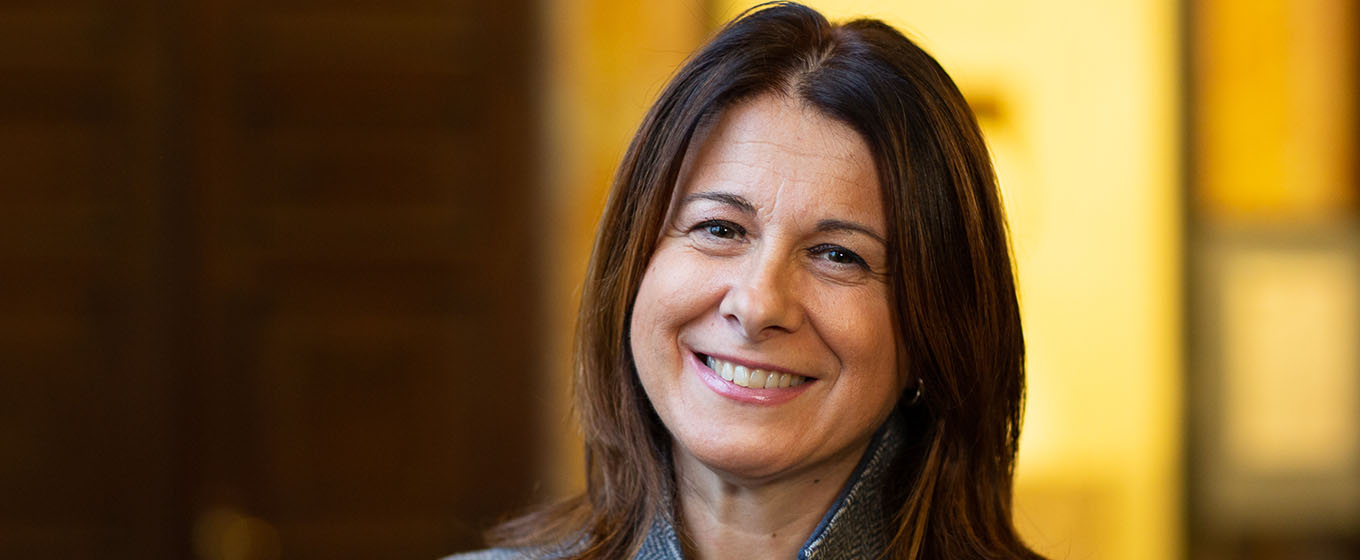Connecting, Adapting, Developing.

The pandemic has made an impact, and continues to do so, on our society, especially in the workforce. Companies are reviewing their business models to cope with the change the crisis has brought forward. I would say that it has further revolutionized the digital trends available in Italy. Now it is pivotal to understand the in-person and digital experiences – the phygital experience – that all the company stakeholders are living: employees, consumers, and partners. It’s necessary to know and understand how to connect effectively in the time of crisis and to what extent do we set boundaries between the online and offline world. Let’s take, for example, buying a product online which drives up the sales and then helps us invent new ways to approach our sales strategies. This requires the process of re-learning technical skills and having widespread leadership at all levels of the organization.
To work in changing and uncertain situations, agility and adaptability are fundamental on the part of the employees too. On their end, companies must not only promote working to achieve the objectives and building relationships based on trust and meritocracy, but also having a social duty by considering the welfare of their own people beyond their workplace and inclusive of their psychosocial and family-based needs.
How did Danone face the pandemic crisis and what new values or skills did its employees acquire?
In Danone Company, which has two enterprises in Italy (Danone and Mellin Nutricia), we’ve fostered putting our people first, working for our objectives, and trust in people. Such values have allowed us to continuously operate amidst the time of the pandemic and are carried out in a way that each one of us has had valuable contributions in this tough period. As a company objective, we’ve enhanced our capabilities to listen and communicate in a reliable way to support continuous communication with 600 people. We’ve listened to our employees and their families and have evaluated what is essential for them, ensuring that they are given their organizational and personal needs. For example, we hand out surveys every three weeks to all our employees on how we can improve our service to our workforce, and we share results and next steps. Also, we organize webinars on how families can listen to their own needs especially in taking care of their children. We have improved the education aspect at every level of our company, and this is very satisfactory in terms of employee engagement.
How can the students prepare themselves for the job market after the pandemic? What support should they receive from their University?
The University is a hub where students can enhance and practice their capabilities to be agile and adaptable in the workforce which is characterized as a constantly changing environment and a source of continuous learning. The University is also a place where students discover who they are, what they can and can’t do, and their strengths and limitations. This is crucial since in the context of employment, it’s important to know yourself and your abilities. They need to know how to manage their time and energy, and when to take a break to bounce back.
To adapt to the demands of the pandemic, various universities have turned to remote learning. What value does online education entail in the job market and what new skill sets do companies eye in our post-pandemic setting?
Online education will always be valuable and essential if it focuses on the student, and their ability to interact and be engaged with other people. I believe that education cannot rely solely on artificial intelligence as it is already happening with technical education. Education is a lifetime experience and a channel to allow a person to continuously learn. It’s crucial then to have media of two-way communication between the professors and the students, paying attention to feedback and working on their needs.
Since health and safety measures are to be respected, companies have started to offer remote internships. How do you value this new opportunity to the students and newly graduates?
It’s highly valuable. It still connects the students with the companies in a way that helps them learn more about the processes and develop their skills. We’ve adopted this setting with our interns during the pandemic, hosting online trainings and coachings from our seniors. To be more inclusive, we’ve extended such corporate welfare since 2019 to all our interns since they’re our first channel in recruitment.

